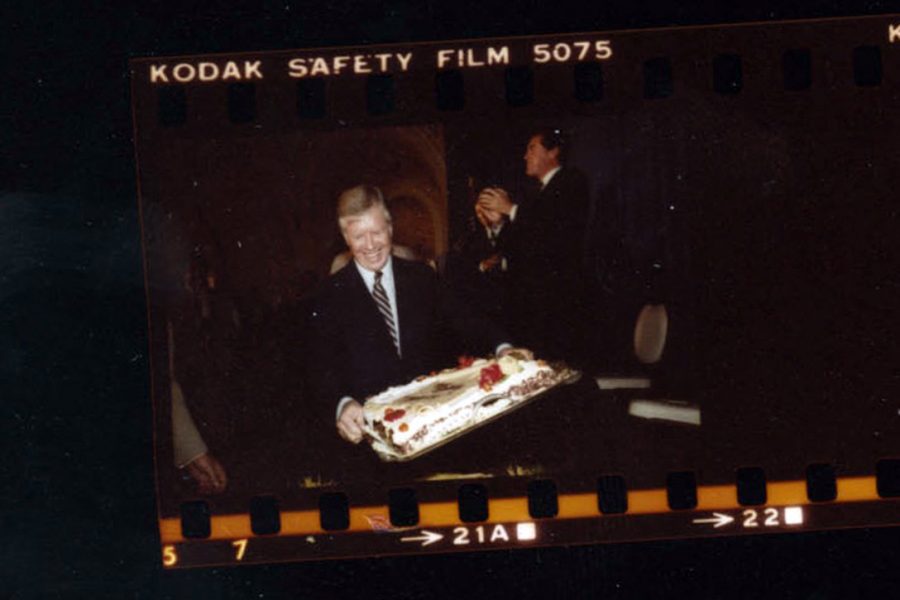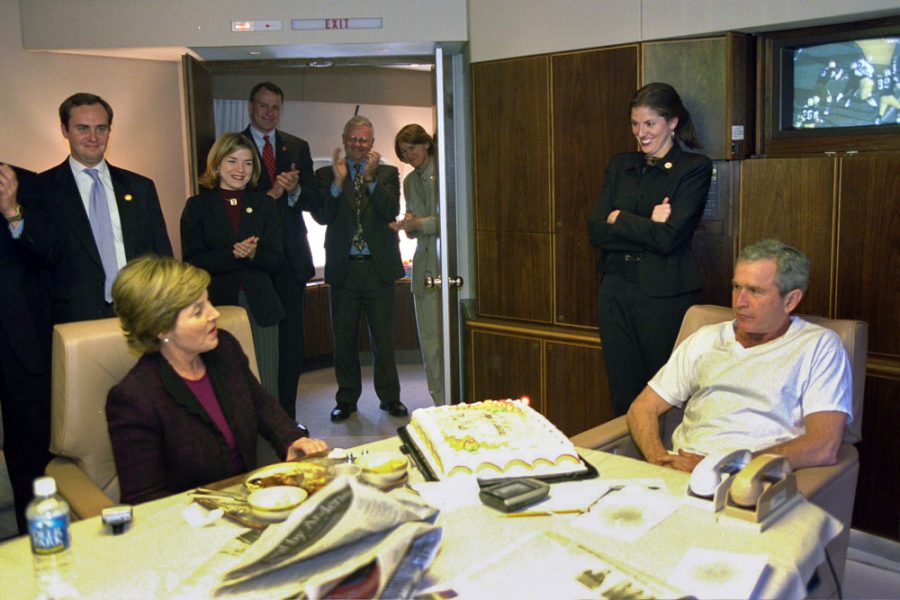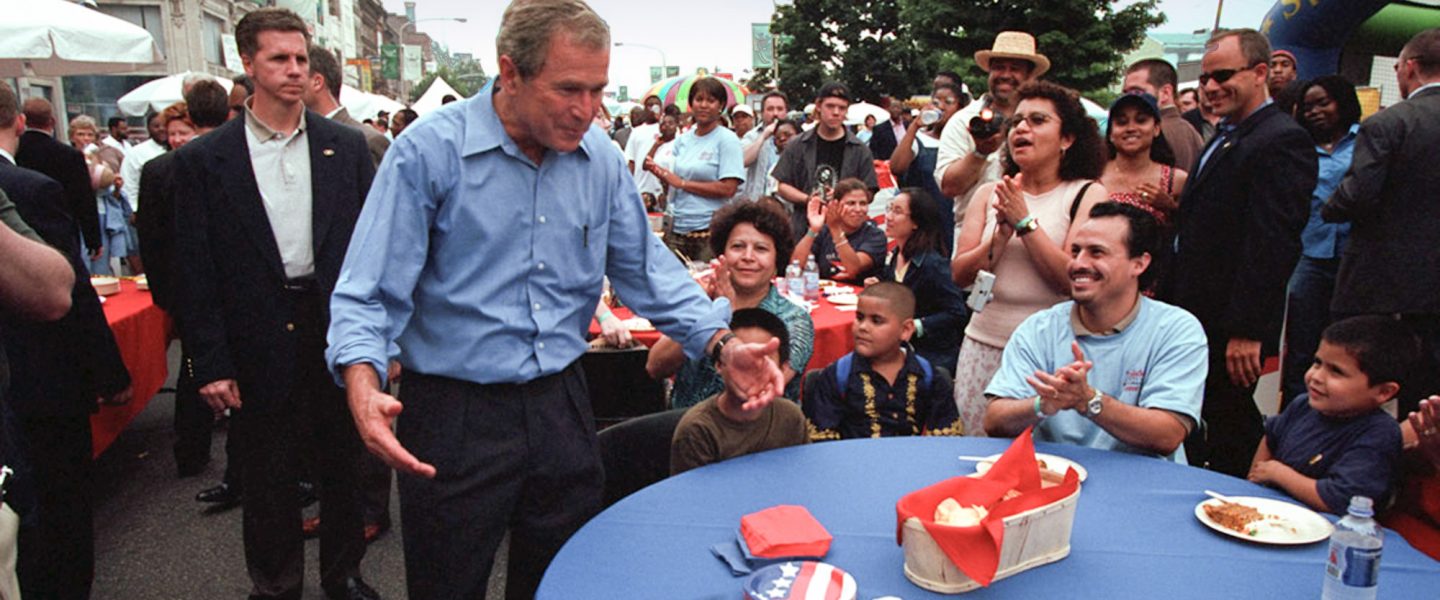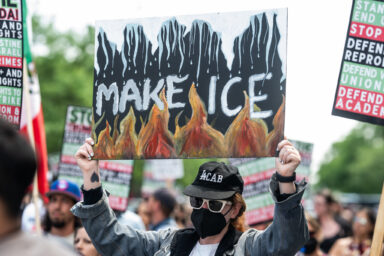The practice of actually using the laws intended to promote transparency illustrates just how broken the process of legal disclosure can be.
|
Listen To This Story
|
Government transparency earned a rare victory this week. Arkansas’s Gov. Sarah Huckabee Sanders’s attempts to strongly restrict her state’s Freedom of Information law received strong pushback, and may even result in that state enshrining transparency in its constitution. But while public support for the right to know as a concept is always a good thing, the practice of actually using the laws as intended illustrates just how broken the process of legal disclosure can be.
By way of illustration, consider this brief account of an early foray of my own.
The year 2016 was one of milestones for me: I got married, I turned a decade older, and I filed a public records request for photos of former President George W. Bush with cake. “Birthday or otherwise,” as the request clarified.
It just so happens that 2016 was also a banner year for our nation’s Freedom of Information Act (FOIA), which was celebrating 50 years since a California congressman by the name of John E. Moss strong-armed the infamously strong-armed President Lyndon B. Johson into signing it into law. As the editor of the government transparency nonprofit MuckRock at the time, I decided the best way to commemorate the occasion would be to compile a collection of photos of presidents holding cakes, complete with a request for previously unreleased photos from various presidential libraries.
To be clear, at no point during this process did I feel like I was on the verge of as earth-shattering an archival discovery as, say, the “X envelope.” Mine was a deliberately silly request made with the intent of highlighting the deliberate silliness of executive secrecy. The White House is, after all, exempt from FOIA — would it please sir, decades after you’ve left office, might I have a crumb of disclosure? Even if it be something as banal as Jimmy Carter carting off his own birthday cake?

For the most part, the presidential libraries agreed and were happy to dig up photos of Richard Nixon frowning his way through a photo-op to satisfy my request… with one notable exception. The George W. Bush Library, which gave me an estimated completion date of 15 years from my initial request.
You might be wondering — reasonably — why it would take nearly twice as long as Bush was in office to produce something as low-stakes as a candid of Dubya devouring dessert. There are a few reasons, actually.
First and foremost, the presidential library system — and, by extension, the National Archives and Records Administration (NARA) that oversees it — are both woefully understaffed and underfunded. And why wouldn’t they be? As organizations like the National Security Archive have fought so hard to illustrate, so much of the damning history of American empire is buried in bankers boxes and manila folders in archives throughout the country, and what incentive does the government have to make it easier for researchers to expose them?
Second, the Presidential Records Act (PRA) codifies presidents as special people with special carve-outs from transparency. As mentioned above, the White House is exempt from FOIA, and records of an administration don’t become available to the public until five years after the president leaves office. So by the time I made my initial request in 2016, Bush’s records had been fair game for only a little over two years. Almost by design, this creates a huge backlog of requests that, when paired with the first point regarding funding and staffing, makes that decade-plus estimated completion time less surprising and more inevitable.
Finally, one extra bit of presidential privilege afforded by the PRA is literally the “privilege review.” In essence, this creates an additional step of notifying the president’s people that someone wants to snoop around in their files, affording them an extra opportunity to exempt material from release. So, after waiting years for the files to be opened, and then additional years waiting in line for your request to be processed, you could still find your quest for accountability denied by the very figure you’re attempting to hold accountable.
Mind you, all I wanted was cake.
With a process like this, it’s no wonder that people either withdraw their requests in frustration or, sadly, pass away before their turn is up. Cut forward to March of this year, and I got a notification that attrition had whittled down my wait time by half. A mere seven years (and several jobs) later, and my request was up. For completion’s sake more than anything, I indicated I was still interested, and seven months later…

I finally get to FOIA my cake and release it, too.
However, as much as I’d like it to be, that’s not the end of this story. According to the cover letter with the release, 24 photos were denied release under the (b)(7)(E) FOIA exemption, which covers “law enforcement techniques and procedures” whose exposure could “risk circumvention of the law.”
In the world of government secrecy, there’s a running joke that government officials could “easily classify a ham sandwich” if they felt like it. We now know for certain that the adage also applies to cake. But what type of cake, and how that cake would put our national security at risk, we’ll likely never know. I could appeal the exemption and drag on this process another seven years, but even that comes with the caveat that Bush himself would be informed personally that I am coming after his classified cakes.
Which leaves me, seven years and several hundred low-res .jpegs later, wondering about one simple question: If this is what navigating government secrecy is like when you’re hunting down something silly, how much worse is it when you’re tracking down something serious?




